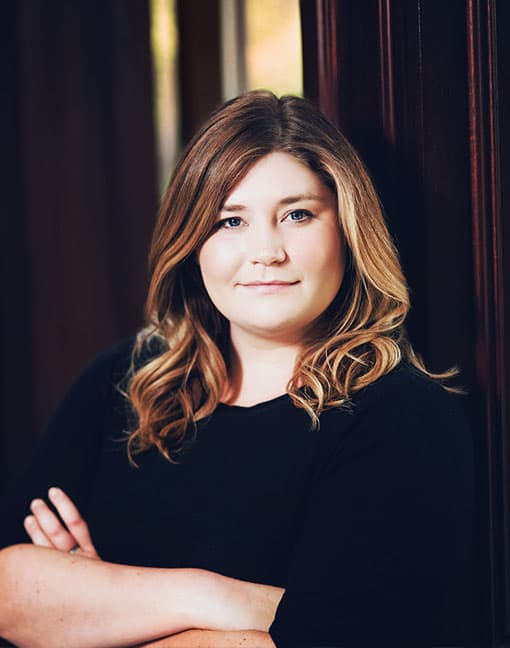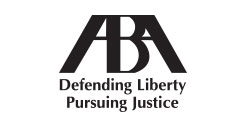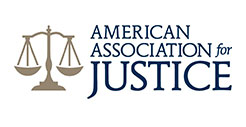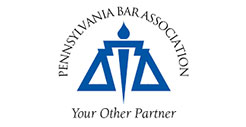When dealing with the devastating aftermath of an accident, we’re here to help you navigate the process of putting your life back on track.
It’s free to call and get your questions answered: (866) 778-5500




For over 25 years, our team of injury lawyers in New Jersey and Pennsylvania has successfully resolved cases just like yours. We know how hard it is to take the first steps and that you may even feel conflicted about talking to an attorney right now.
If you’re not sure whether hiring a lawyer is really worth your time, consider this: People who let an attorney file a personal injury claim on their behalf get settlements that are, on average, 3.5 times greater than what they would receive if they fought the insurance company or responsible party on their own. And since we don’t get paid until you do, there’s no reason not to find out if you have a case.
Our promise to you is this: We always put your well-being first and keep you informed at every step of the process. We want you to feel confident knowing there’s someone in your corner helping you get your life back.
Our personal injury attorneys in New Jersey have an ongoing track record of success and are fully committed to helping accident victims. You can rely on us for sound legal advice and walk beside you through the legal process and make sure your best interests are represented.
We’re here to help in any way we can and answer any questions at no charge, so feel free to reach out to us for a free consultation. Our No Win No Fee Promise means that you don’t owe us any money until we get you your settlement. We work hard for our clients, and we don’t get paid until you win the money you deserve.

Richard P. Console, Jr. opened his firm to serve one purpose: to help the victims of accidents and injuries at a time when they most need assistance. That guiding principle helped him create a personal injury law firm with a remarkable record of success.
view profile
Attorney Michael E. Ellery knows how insurance adjusters and defense attorneys think – because he started out his career in these roles. Today, he exclusively represents injured people as an integral part of our firm.
view profile
A few years into her legal career, Ms. Sewekow is already playing a crucial role in the claims our clients bring to our firm. Lindsay Sewekow’s Background Ms. Sewekow, of Medford Lakes, NJ, is licensed to practice law in New Jersey, Pennsylvania, and California.
view profileWe believe this is the key to maximum recovery for you – and why we have a reputation for exemplary service in the industry.
When you or your loved one is seriously injured and come to our law firm for legal assistance and counsel, we make it very clear that we are not in business for our own interests. Rather, your needs and desires inform our every legal move throughout your case. During your free, 100% confidential consultation, we listen intently to your case and your expectations. From there, we form a comprehensive personal injury case strategy that is custom-tailored to your desired outcome.
We are transparent throughout all legal proceedings, keeping you well-informed on any developments or moves we make to ensure you receive the recovery you deserve. We welcome any questions or feedback throughout the process, and we will not take major steps without your approval. If we believe you can maximize your recovery by taking your case to trial, we will do so – but not without informing you first of our intentions. Ultimately, we are there to advocate for your needs – not to push our own agenda.
Looking for a car accident lawyer in Marlton, NJ or the surrounding area? We understand that serious accidents can have a sudden financial impact on individuals and their families, leaving them unable to retain legal representation for their case – or receive less-than-stellar counsel from cut-rate firms.
At Console & Associates Accident Injury Lawyers PC, our New Jersey car accident lawyers sympathize with your situation and operate under a No Fee Promise for all of our clients. We do not charge any initial fees or upfront legal costs, and we never charge any hourly costs throughout the proceedings. All expenses are advanced, and there are no out-of-pocket costs whatsoever. If we do not secure a favorable verdict or settlement on your behalf, you pay nothing. If we do win, all of your medical bills are covered before we take a percentage of the damages for our fees.
This arrangement allows you to receive the best legal service without worrying about whether or not you can afford it. Additionally, it allows us to give you the best possible representation without being preoccupied by hourly fees, invoices, and any other extraneous distractions.





The first step is to call our office at 856-778-5500.
The call is free and there’s no obligation to proceed. We’ll give you straight answers about your options and if we cant help you, we’ll put you in touch with someone who can.
Our process begins by preparing your case for trial from day one and if need be, we’ll fight for you in court. However, insurance companies know how experienced and diligent we are and very few are willing to take the risk of trying a claim against us.
As a result, only a small percentage of our cases go to trial.
Here are just some of the things we’ll take care of for you so you can focus on your well-being:
Frequently Asked Questions
Personal injury is a broad term that refers to physical harm. It does not cover cases such as property damage or defamation.
In a local personal injury claim, you, as the plaintiff, are suing another person or party, called the defendant, for causing your accident. Typically, the claim seeks to receive compensation from the at-fault person’s insurance company, rather than the individual.
The money damages you recover in a personal injury lawsuit can help bring your life back to normal or help you discover a “new normal” your family can live with. Often, our clients use their settlements to afford top-quality medical care, make up for the income they missed out on while injured, or adjust their homes and other parts of their lives to make getting around more manageable in spite of the injury.
Yes! Personal injury law covers a variety of accident types, including:
To make a successful claim, you’ll need two pieces of information:
1 | Proof of Negligence
2 | Sum of Damages
Our team of local personal injury attorneys in New Jersey can help you navigate the process of determining damages. We will figure out what you are entitled to and fight for every last penny.
The personal injury claims process is complicated. An experienced local injury attorney like ours will be there to help every step of the way, so you can focus on recovery instead of a legal battle. Letting us handle your case is about more than managing your claim. It means fewer things you have to worry about.
1 | Get Medical Treatment. Never put off medical treatment. Not going to the doctor right away isn’t just bad for your health but also for your claim. Insurance companies need to see that you sought treatment right away, or they may argue that you weren’t really hurt in the accident.
2 | Get an Experienced Accident Attorney: Call a local personal injury lawyer. We will guide you through the process, compile the necessary documentation for a claim, and do the work needed to get you financial compensation. We also handle insurance company interactions. Insurance companies are businesses and will fight hard to pay out as little as possible. We are here to fight back harder. Our team will work tirelessly to help you win the compensation you deserve.
When our experienced local injury attorneys figure out the value of your claim, we’re looking primarily at three components: your injuries and resulting medical bills, your lost wages, and the pain and suffering you’ve endured.
Injuries and medical expenses
Getting the right medical care is critical to properly treating your injuries, but it also serves a second essential purpose for your case: documenting those injuries. Insurance companies will probably argue that your injuries aren’t serious in order to get out of paying what you deserve. The extent of the medical expenses you incur is a good indicator of how much your case is worth.
Loss of Wages
With a serious injury, it could take weeks or months until you return to work, if you’re able to return at all. At Console and Associates Accident Injury Lawyers, PC‚ we fight to get you compensation for any lost wages that result from the accident.
Pain and Suffering
Unfortunately, there’s nothing we or anyone else can do to reverse the accident. We can’t prevent you from having to endure the physical and emotional consequences of your injury. What we can do is get you compensation for the pain you have experienced and the suffering the injury has caused you.
Of course, there are other factors that affect the value of a personal injury claim, too. That’s why you can’t use a simple formula to figure out how much money you truly deserve. Since each claim is so unique, the most accurate way to figure out how much you might be owed is to call us. An attorney will analyze all of the details of your claim and let you know what your options are.
When you’re seriously hurt due to someone else’s negligence, you need a local personal injury lawyer who always puts clients first and isn’t afraid to fight for your rights. At Console and Associates Accident Injury Lawyers, PC‚ we take pride in how hard we work to be there for you in every way. We develop personal relationships with our clients. We are here to listen, to help you navigate your medical treatment, to help you meet your statute of limitations deadlines, to uncover the full extent of your damages, and to handle calls with the insurance company.
Let us know what problems you’re facing. You might be surprised how much we can help with.
We’ve handled personal injury cases of all types and have recovered large settlements for victims of car accidents, slip and fall injuries, and other types of accidents in New Jersey and Pennsylvania.
We’re in it to win it for you. If we can’t secure you a settlement‚ you don’t owe us a dime.
We have several teams of experienced personal injury attorneys located through out New Jersey and another team of professional personal injury lawyers located in Philidelphia, PA.
Our No Fee Promise is very simple: We never charge you anything for our services until you win your claim.
From our first conversation until the day we reach settlement, you’ll never pay a penny for us to handle your claim.
Console and Associates Accident Injury Lawyers, PC, No Fee Promise aligns our goals with yours. Rather than charge you an hourly rate, we take a portion of the final settlement as payment. That means the amount of money we receive as payment is directly related to the amount of money you receive in your settlement. This is known as a contingency fee basis.
Contingency fee structures benefit the plaintiffs in personal injury matters. Lawyers who charge hourly fees or flat costs don’t necessarily care if you win or lose. Attorneys who bill hourly will often rack up as many hours as possible to make the most money. On the other hand, if a lawyer charges a flat fee, your personal injury case might only get a few hours of their attention. With our contingency fee structure, you know that your attorneys have your best interests at heart. The more money we get for you, the more we make, too.
At Console and Associates, we put in as much time and energy as is needed to help you win your case. If we can’t successfully reach a settlement, you owe us nothing. It’s that simple.
We are real people who have experienced injuries, too.
People often feel that attorneys are not compassionate and focus mostly on the details of the law. While we do work diligently on every detail of your case, we are dedicated because we have been in your shoes. Our local personal injury lawyers have experienced pain, mistreatment, and negligence, and so have many of our close family members and friends. We fight for justice because we know firsthand the pain and confusion a serious injury can cause. We understand all too well how you feel right now, and we’ll do all we can to help make life after an accident easier on you.
We’ve been winning personal injury cases since 1994.
The team of lawyers and support staff at Console and Associates brings decades of experience to the table. When you work with us, you are tapping into our extensive knowledge of the legal and insurance industries and following the guidance of lawyers who have seen it all. It’s likely that we’ve worked on cases similar to yours in the past, and we already have a proven record of navigating the legal system and achieving favorable outcomes for our clients. Having experienced legal representation from a law firm like Console and Associates Accident Injury Lawyers, PC increases the chances that you win your suit.
Bringing a case against an employer, an insurance company, or a private individual doesn’t have to be difficult or scary. We handle the complexities of personal injury law every day. By taking on the full responsibility of managing the claim, we make this otherwise challenging process very easy on you, and ensure you receive fair compensation for your injuries.
We want you to have the help you deserve.
The reason people pay for insurance is so that, if someone gets injured in some sort of accident, their insurance will take care of the financial costs. Yet you would be surprised how hard it can be to get this to happen. The insurance company wants to keep as much of its money as possible, even when you’re rightfully entitled to a payout.
And they have entire teams of employees whose job is to do just that.
It can be overwhelming to think of the financial burden on your family when an insurance company rejects your claim or minimizes your pain. You may feel victimized all over again – but you don’t have to put up with this behavior.
We believe in standing up for individuals who have been burdened by increasing medical bills and other expenses due to the combination of an injury that is not their fault and the insurance companies that are more interested in profit than doing their jobs. Let us use our experience and knowledge of the law to navigate these complex situations while you focus on healing and recovering after a traumatic injury.
Don’t wait for the statute of limitations to take away your legal rights, or for you to feel too overwhelmed by the claims process to know what to do next. Start getting help right now, before your legal claim becomes a burden to your recovery and your family.
Contact Console and Associates today to get started working with a lawyer you can trust. Reach out to our local personal injury attorneys in New Jersey at (866) 778-5500 for your free case evaluation.